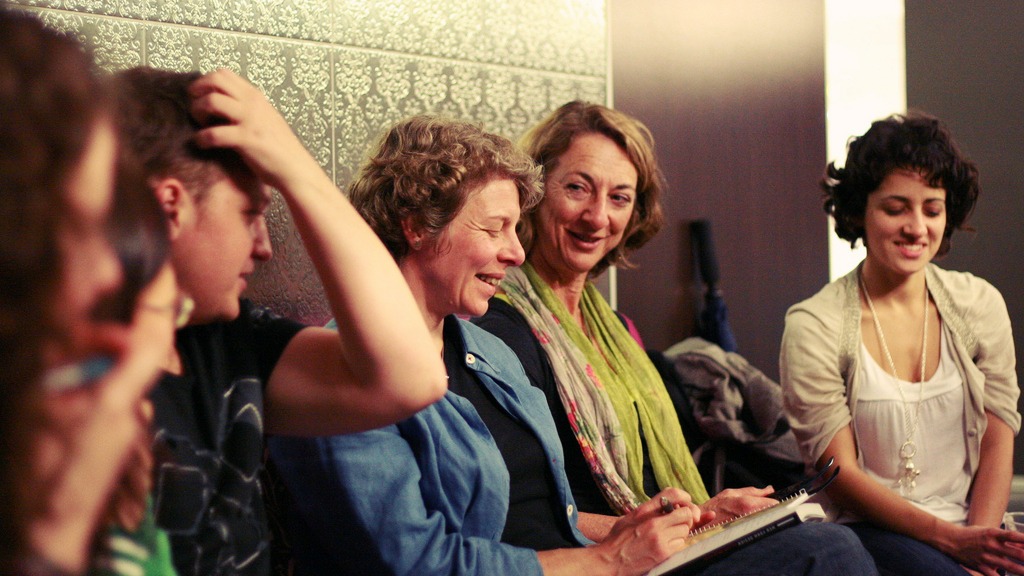We’re constantly tempted to focus on what women can’t do or how women have struggled. Sometimes, it’s for good reason—throughout history, there are countless instances of society and the church failing to affirm women.
But as I explored the topic of contemporary biblical womanhood for my upcoming book, The Accidental Feminist, I realized something we rarely say outloud, especially as conservative Christians: It’s a good time to be a woman in the church.
More than ever, we see pastors, leaders, publishers, and publications seeking out women’s voices and highlighting women’s contributions. This is a time when we are working together, as women, men, and the church as a whole, to see how all of the Bible is for all of God’s children. As Southern Baptist pastor J.D. Greear recently told his congregation, women “better not limit themselves to Ephesians 5 and Proverbs 31,” as if the rest of the Bible were for men.
He went on to say:
The church needs more Deborahs. We need those godly, strong women to step up and use the gifts God has given them. We need Deborahs in the home, speaking courage into their family’s lives. We need Deborahs in ministry, calling us to give and pray and go and sacrifice. We need Deborahs in society, women who lead with wisdom, courage, and faith.
Of course, the biblical precedent for women’s gifts has always been there, but we haven’t always seen it clearly articulated by church leadership. Even within complementarianism (which I hold to), there remains room for debate over how men and women live as equal in value, worth, and purpose, but different by design.
Now is a unique time for women to embrace our God-given identity as image-bearers, and live it out in ways that we have not been afforded before. Look across Christian media, and you’ll find women’s names on bestselling book covers and their bylines on news, ministry, and network websites. Several Christian publishing companies have launched imprints specifically for women’s books, and publications like this one dedicate space to women’s perspectives.
Women writers today don’t focus only on "pink passages," as Hannah Anderson says in her book, Made for More. Titles by Christian women—addressing topics like biblical literacy, desire, fear, and the doctrine of grace—are read and endorsed by male and female leaders; on Her.meneutics, about 1 in 3 of our readers are men.
When God declared that it was not good for Adam to be alone, he made a statement about the importance of us imaging God together, male and female. Men need women, and women need men. And while there is a place for gendered ministry—Titus 2 still applies today—this can’t be the only form of ministry men and women engage in. We each bring a unique perspective to the table that serves each other and gives testimony to the glory of God.
At the same time, we are all telling a story about God to a watching world. As image bearers, our lives are a reflection of the God who created us. Through our varying gifts, personalities, and life circumstances, Christian women showcase God’s good design to a world that often sees our differences as meaningless at best, and cultural constructs at worst.
Today’s Christian women have more opportunities to comfort, support, encourage, and teach one another as we explore what it means to be godly women in a sin-cursed world. While not all women identify as feminist, I think that we all are “accidental feminists” at heart; we—like generations of feminists past and present—want the right to define ourselves and control our own lives. In my book, I discuss feminism’s broad influence, then point to a better solution: a restored understanding of God’s good plan for us as women.
The fact that we are seeing women writing about a host of topics pertaining to our growth as believers is a positive shift. In a culture that increasingly dismisses or misunderstands the idea of gender complementarity, it matters more than ever that we know well our design and role as female image-bearers, and the God who created us that way.
Together, we are doing our part to fight the battle of the sexes that has plagued us for too long. As we honor our fellow men as brothers in Christ, respect our fellow women as sister in Christ with valid purposes to fulfill, and remember that our lives are telling a story about the One we were always intended to image, may the world see that accidental feminism and fighting with each other isn’t the answer, but restoring our delight in God’s good design through the shed blood of Christ is.
Courtney’s book, The Accidental Feminist: Restoring Our Delight in God’s Good Design, releases at the end of May. You can pre-order it now from Amazon or Crossway.









